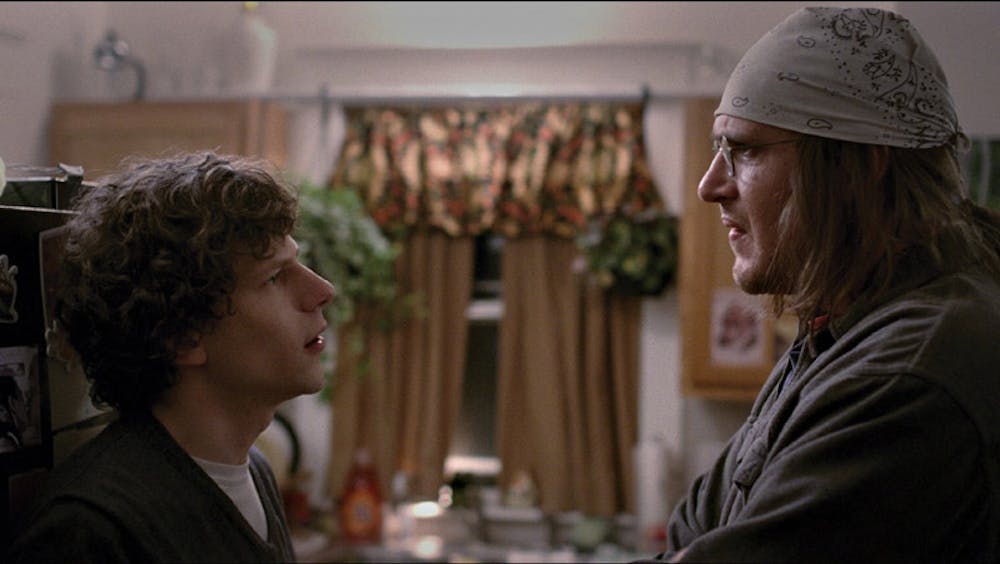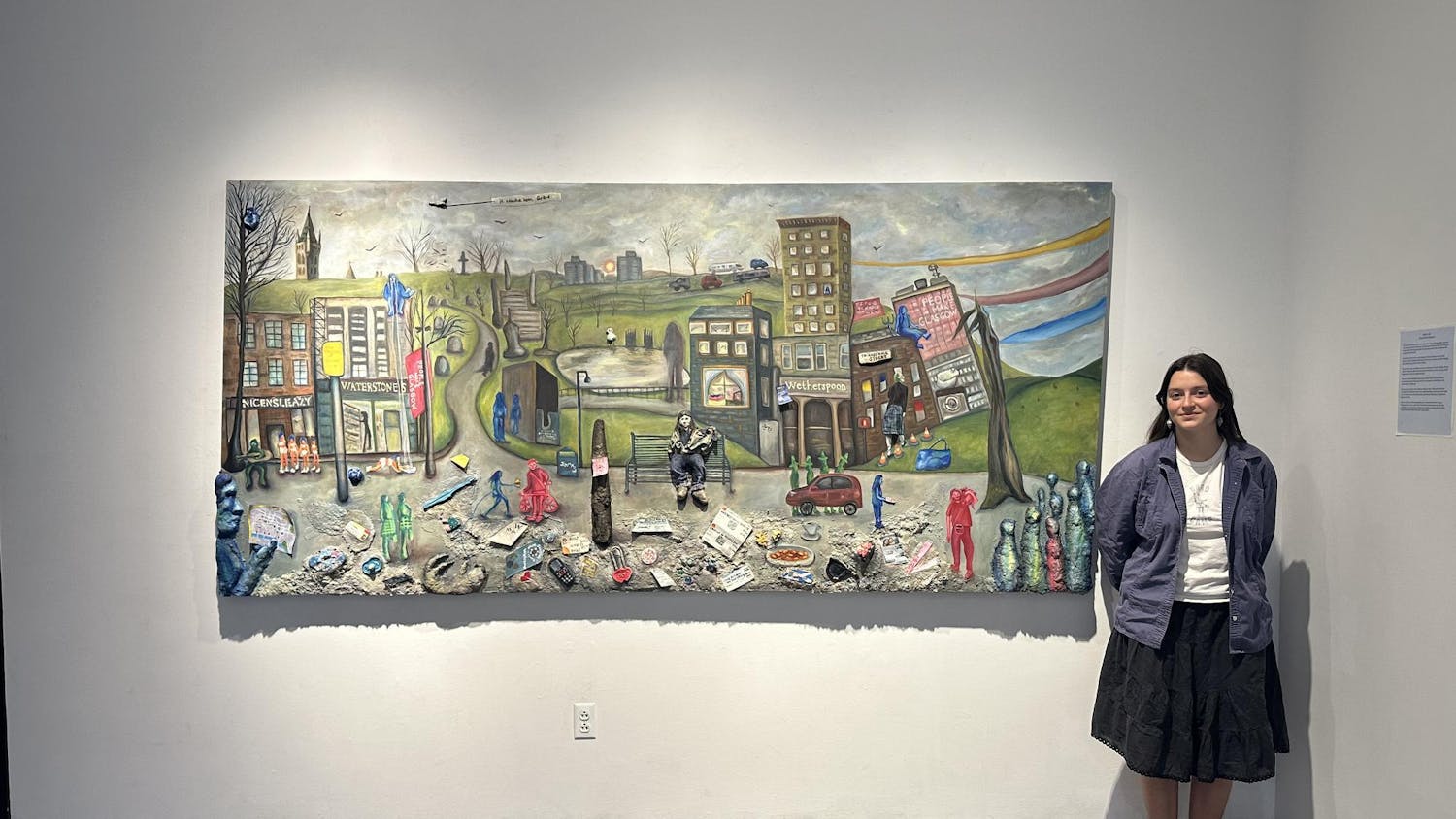“The End of the Tour” kicked off the Ivy Film Festival to a packed audience in the Martinos Auditorium Monday. A dramatic subversion of the usual road trip comedy, the film follows a journalist tasked with profiling author David Foster Wallace on the final leg of a book tour.
Jason Segel breaks out of buddy comedy tropes to play the late Wallace. Donned in full Wallace garb — bandana and all — Segel’s persona unexpectedly complements the author’s humble intellect. Jesse Eisenberg plays David Lipsky, a Rolling Stone contributing editor and author of the film’s source text, “Although of Course You End Up Becoming Yourself.” The film opens with Lipsky receiving news of Wallace’s suicide in 2008 and then shifts back to recount the 1996 collision of their personalities.
An artistically insecure fiction author, Lipsky is envious of the massive success of his subject following the release of the prodigious tome, “Infinite Jest.” Wallace, fame-resistant and living a solitary midwestern existence, is unsettled by the degree to which Lipsky controls his public image. Eisenberg and Segel play into these underlying tensions over the course of their week-long road trip.
“Tour” is visually simple. The film finds aesthetic value in middling Middle America: barren snow-covered terrains, a row of neon fast food signs, the Mall of America. The setting reflects and reaffirms Wallace’s aspiration to averageness in his personal life. While averageness may not feel like high praise for a film, these images serve their purpose. The simple beauty of the film’s cinematography turns our attention back to the dialogue and the beauty of Wallace’s words.
Coming off the success of his previous Sundance film, “The Spectacular Now,” director James Ponsoldt orients the film around the dialogue-heavy duet of the film’s protagonists. Much of the dialogue is taken directly from Lipsky’s tape recordings of their conversations. In the vein of Richard Linklater’s “Before” trilogy, these two characters wax poetic on everything from fame and journalistic ethics to Alanis Morissette and their respective existential crises.
While this dialogue is mostly pitter-patter exchanges, the moments when Wallace resists Lipsky’s conversational forays into depression and addiction grow heavy with the knowledge of Wallace’s suicide.
By the road trip’s conclusion, the friction between Wallace and Lipsky’s conflicting interests gives heat to a scene of intellectual sparring. This heat dissipates with the film’s uncomfortable and all-too-real conclusion.
Lipsky — who Eisenberg portrays with an educated arrogance throughout the film — uses his brush with literary genius to realize his own literary aspirations. But perhaps this end feels slight because the film’s strength comes from Wallace’s presence on the screen. In the end, “The End of the Tour” is an exploration of Wallace’s enigmatic persona, and viewers can count seeing his fear of solitude and struggle with depression personalized as one of the film’s greatest achievements.
Once Wallace becomes absent from the film, viewers are left to consider the gravity of his passing.
“The End of the Tour” will begin its limited release July 31.





